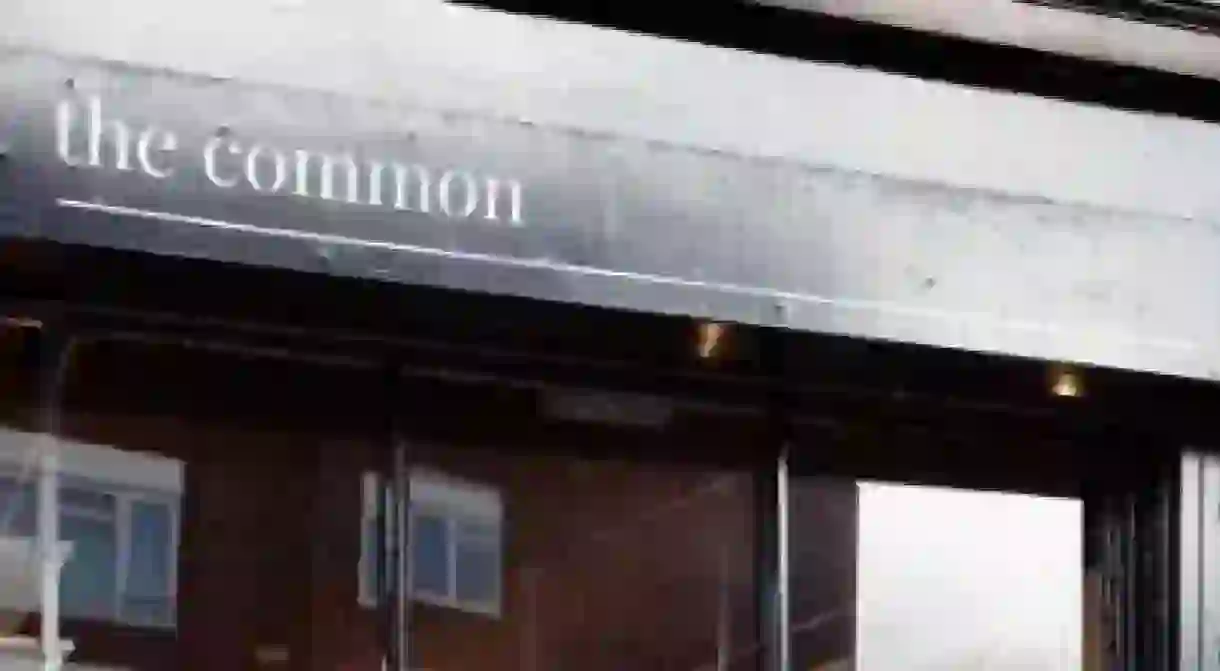9 Reasons To Visit London's The Common E2

Bethnal Green, London is fast becoming a hub for the creative industries. Located on Old Bethnal Green Road, The Common E2, is perhaps one of London’s most unique architectural businesses. Director Mark Sciberras has created a hybrid of coffee shop and design studios that also hosts Collective Works and Common Ground Workshop. It’s the place to go for a latté or a bespoke building design. Here’s what you need to know about The Common E2.

Transparency
Few companies in London allow the general public to enter and observe professionals at work, but The Common is different in that regard. Customers can sit, enjoy lunch or a coffee, and observe architects at work. From sketches to CAD designs, patrons are in the midst of contemporary buildings in creation. The architects aren’t distracted by conversations and the sound of steam whistling through a barista machine. The hive of activity seems to foster and develop ideas and creative vision for the designers by interacting with patrons and each other. The modern workspace of the ‘cubicle’ has been done away with at The Common, and the merger of two business practices redefines traditional workspaces, allowing architecture to become a more transparent profession.

Double Aspect
In terms of aesthetics, the double aspect of glass at the front and back of the premises makes for a wonderful reason to visit The Common. The large window façade allows a direct view from street level to the back courtyard. These types of buildings are hidden gems in London as they allow an unblocked view to the outside wherever a person is seated. Also, the back walls have been purposefully built to allow maximum light into the basement floor that has been gutted and renovated into a bright, contemporary working environment. The efficient and clever use of glass means that even on the darkest of days, The Common is flooded with light.

Architect and Barista
Nothing is done by halves at The Common, for in spite of the shared space, baristas and architects do not cross paths. The clear separation of professions means the integrity of both arts is never questioned. The espressos are strong and the cappuccinos are creamy, while at the back of the shop the architects work on a mixture of residential and commercial buildings to an impeccable standard – the designs are on the wall to prove it!
Projects
As many architectural firms race to plan high rise buildings and luxury apartments in the crowded space that is London, The Common is committed to keeping projects local. It means patrons and clients are more likely to see the works of The Common in and around their neighbourhood rather than more exclusive locations. The Common does take on large scale projects, liaising with other companies and will feature at the London Festival of Architecture. It’s evidence of dreaming big in small spaces.

Balance
There’s an assumption that a coffee shop would be far too noisy and an architect would need a monastic environment in which to create. The Common is an example of a symbiotic business and the two practices working together. Customers become engrossed by the focus of the designers and the level of conversation seems to be at a pleasant volume. Similarly, the steady rhythm of sound keeps the architects inspired; perhaps the people-watching happens both ways here. The Common recorded the noise on site and, even at peak times, found it to be a comfortable 67 decibels. Furthermore, without offices, the sense of hierarchy isn’t apparent here as the establishment leans towards collegiality and collaborative efforts to develop stunning designs.

The Common Good
What is most unique about The Common is the sense of community that it is forging between the business world and the residents of Bethnal Green. The company welcomes parents with young children and babiccinos are free. They accommodate patrons with dogs and sent out flyers for free coffee to the local community. Mark is quite conscientious about pricing food and beverages to allow patrons from all walks of life to enjoy the coffee shop.

Climpson Coffee
The baristas at The Common use Climpson & Sons coffee. Established in 2002, this roast of coffee is smooth and full-flavoured with no bitterness. The espressos are dark and strong, the piccolos are a wonderful pick-me-up, and the milk-based coffees are luxuriously creamy. So well made are the coffees that there is little need for sugar.

The Art of Food
Amid the serious design process is the whimsical menu serving delicious food. The toasted jaffles all have local names. Ask for the ‘Lawdale,’ and receive a falafel, tzatziki, tomato chuntney, and spinach toasted sandwich. The ‘Johnny,’ made with tomato chutney, mozzarella, salami, and basil, found its name when three patrons named Johnny asked for the same sandwich. True to the pledge of community, the bread is sourced from the E5 Bakehouse and the food is seasonal. The soups, served with Turkish bread, are especially good.
Future
The Common is exceptional in the world of architecture. Gone are the boundaries between the public and the architectural profession through the use of a coffee shop. The future plans are to continue embedding connections in the local community and make the space a place where people can work using the free WiFi, and where the urban landscape is developed, not with people in mind, but with them present at the point of creation.
The Commons E2, 53 Old Bethnal Green Road, London, UK













